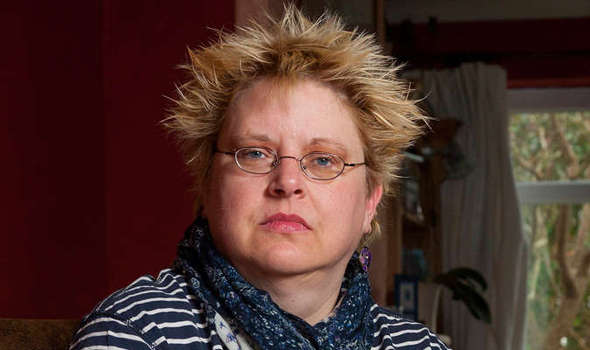Mental health patients wait years for correct treatment
PATIENTS with mental health problems are routinely waiting two years to receive treatment, the Sunday Express can reveal.

Sam Robertson hit rock bottom due to treatment delays
In many cases they do not receive proper help for depression until they become suicidal.
A Sunday Express investigation also found 20 per cent of mental health patients wait for more than a year for therapy and 10 per cent wait more than two years.
Even when a person has been referred for a particular treatment, they can still wait a further two years.
Instead many are often prescribed antidepressants despite overwhelming evidence showing all mental health patients need “talking therapy” from the outset to aid their recovery.
Jane Harris, associate director of the charity Rethink Mental Illness, said: “People do not get better with anti-depressants alone.
It is an absolute scandal that these patients are not getting the right help when they need it and often become suicidal before they get proper help. The NHS is used to providing drugs, it is good at it, but this is letting so many mental health patients down.
“If you have a mental health problem it is hard to fight for your rights because you have lost confidence and the reality is these patients are forgotten. Relatives don’t always push for the right help as they can feel ashamed and do not shout as loudly.”
Figures drawn from a range of surveys carried out by mental health charities Mind and Rethink show even people with the most severe forms of mental illness are not getting the right help.
I felt absolutely hollow. I would sleep for many hours of the day because my brain just shut down
Only 10 per cent of people with schizophrenia get access to therapies recommended by health watchdog the National Institute for Clinical Excellence.
Under government guidance severely mentally ill patients should also be given annual health checks and long-term support to get back to work. A Rethink survey shows only one in 10 of this group is receiving this.
Paul Farmer, chief executive of Mind, said: “We are now beginning to see the huge scale of demand for talking therapies, fuelled by the current economic climate.”
Sam Robertson, 47, from Fareham, Hampshire, developed postnatal depression after the birth of her son in January 1996. In October that year she saw her GP who prescribed antidepressants.
She said: “I felt absolutely hollow. I would sleep for many hours of the day because my brain just shut down.”
Mrs Robertson, a former economics teacher, was not offered psychological help until a nurse spotted her illness during a routine check-up for her son in May 1997. By this time she says she was suicidal and was taken into hospital.
She added: “You are allowed to get so bad. I do not believe I would have become so ill if I had been given the right help – talking therapy – when I really needed it.

Some mental health patients feel let down by the NHS
My journey back to a meaningful life has taken me so much longer and I am still recovering. It takes far longer to get back when you have hit rock bottom.”
Mrs Robertson, who helps co-ordinate mental health services in her area, is still on medication for her illness.
She said: “If you can get to services when you are still coping it reduces the need to be hospitalised and can prevent the spiralling descent into despair that is hard to come out of.”
In another case David Strange, 39, from Winchester, was a biology student at Oxford University when he developed paranoid schizophrenia.
He was on a waiting list for eight years for talking therapies, during which time he made several attempts to kill himself. David was finally given access to cognitive behavioural therapy in 2010 which has transformed his life.
Mr Strange, who runs a food and drink website, said: “Over the years I was prescribed a multitude of antipsychotic drugs, most of which did not help, but never given psychological therapy.
“As a last resort I was prescribed a powerful drug which affected my heart; the chest pains were terrifying. The doctor said I’d be dead from heart failure within six months if I didn’t stop taking it.”

No comments:
Post a Comment